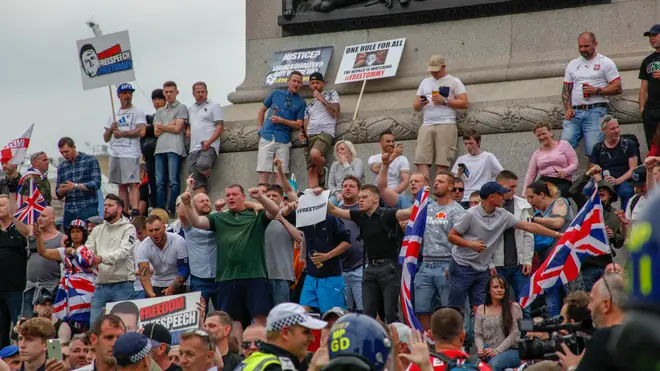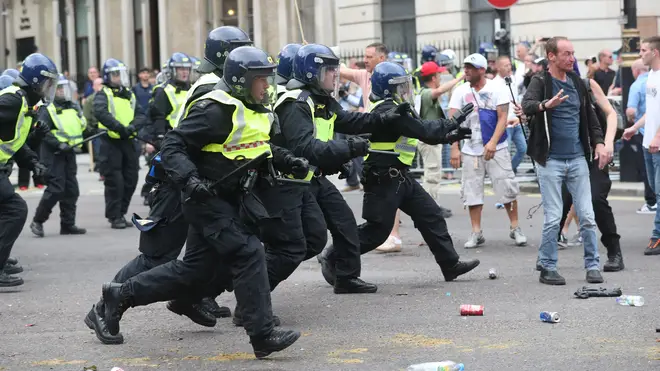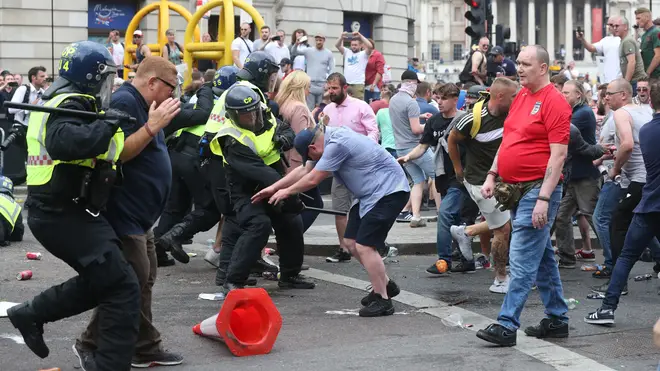
Richard Spurr 1am - 4am
1 October 2019, 20:15

Six more men have been jailed for their part in a violent ‘Free Tommy Robinson’ demonstration last year.
Thousands took to the streets of central London on June 9 2018 demanding the release of the EDL founder from prison after he was jailed for contempt of court.
The far-right rally erupted into violence, with scaffolding, glass bottles and items of street furniture, including heavy barriers, thrown at police.
More than 20 officers suffered injuries, and the protest caused serious disruption on Whitehall and the surrounding area.
The six men jailed on Monday were the last in a group of 14 to be sentenced for their part in the disorder.
James Thomas, 28, and John Cummings, 49, were jailed for 18 months each, while Charles Haig, 24, sentenced to 12 months’ imprisonment.

Mitchell Feneck, 21, was jailed for 10 months, while Max Hammet-Millay, 22, and Mark Ransome, 25, were sentenced to 12 months each.
Operation Augusta was launched by the Met to bring those involved in the disorder to justice.
Detective Sergeant Matt Hearing, who led the Operation Augusta team, said: “This investigation proved extremely challenging with hundreds of hours of CCTV, video and Body Worn Video to examine.
“However, such was the weight of evidence brought against those charged, that all pleaded guilty.
“Peaceful protest plays an important role in our society. However, the actions of some involved in this demonstration showed a contempt both for the law and the police.

“Officers that day were there to ensure the safety of all those taking part, yet were met with abuse and violence.”
Robert Hutchinson, prosecutor from the London CPS complex casework unit, said: “The terrifying disorder wreaked by these individuals in the heart of London on 9 June 2018, was inexcusable.
“Protestors set out to intimidate and hurt police, injuring more than 20 officers who were protecting the public and tourists in Central London on the day of Trooping of the Colour, and who should have been able to go about their duties without fear of violence.
“This was a complex case and has involved exceptionally close liaison with the police from an early stage to determine appropriate charges that reflected the seriousness of their crimes. The strong case we built ultimately left the defendants with no choice but to plead guilty.
“The sentences passed should serve as a warning that those who direct violence towards police and act in this way will face prosecution and potentially prison.”